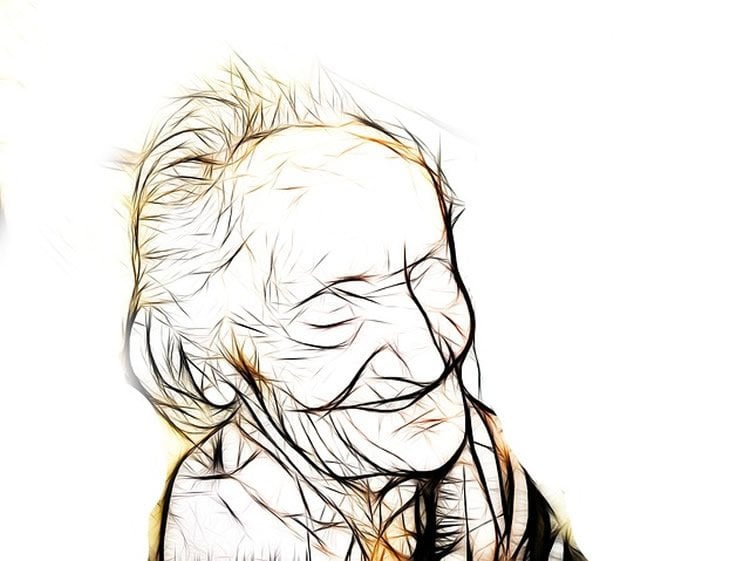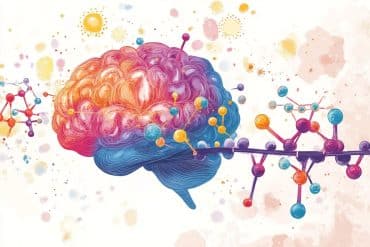Summary: Researchers report a telemedicine speech therapy program can help people recall words they had ‘lost’ as a result of dementia.
Source: Northwestern University.
New telemedicine program offers specialized speech therapy for language problems.
A novel telemedicine speech therapy program for people with language problems due to dementia significantly improved their ability to recall words they had “lost,” reports a new Northwestern Medicine study.
One woman could once again identify the tulips and daffodils in her garden. And a man restored his ability to issue commands to his border collie to herd the sheep on his farm and order his favorite meal from the drive-through at Steak ‘n Shake.
People with Alzheimer’s dementia or primary progressive aphasia often have language problems, struggling to retrieve the name of a grandchild or find the words to order dinner in a restaurant.
But their aphasia often goes untreated because most speech-language pathologists are trained to help children or individuals with stroke, not those with dementia.
Northwestern scientists are closing that gap by developing a new program – called the Communication Bridge — in which specially trained speech-language pathologists offer personalized therapy over the web to those with dementia-related language impairment, also known as aphasia.
A new pilot study shows the participants made significant improvement in recalling the words they had found troublesome after two months of therapy, and maintained that improvement after six months.
One Colorado woman, after eight weeks of therapy and practice with virtual flashcards, could once again name the flowers in her garden and identify her golf swings. A woman from Alabama was able to retrieve the names of her grandchildren.
“These improvements are especially exciting because in neurodegenerative diseases we would expect declines, but these dementia patients are holding onto these gains,” said lead author Emily Rogalski, associate professor at the Cognitive Neurology and Alzheimer’s Disease Center at Northwestern University Feinberg School of Medicine.
The new study showing the feasibility and early results of the program is published in the journal Alzheimer’s & Dementia: Translational Research & Clinical Interventions.
“There’s a misconception that speech-language pathologists can’t help people with dementia, but, in fact, they have many tools that can be helpful,” Rogalski said.
Individuals with dementia-related aphasia are able to learn, she noted.
“This is not a cure, but we may be able to delay some of the progression and maximize that person’s remaining abilities so they can compensate as long as possible,” Rogalski said.
The program starts with an evaluation to determine a person’s challenges and strengths. Then it includes eight therapy sessions with a specialized speech pathologist via a secure video-chat platform, videos to reinforce what was taught during the sessions and home assignments like virtual flashcards and a communication notebook to support language memory.
“It doesn’t matter where the patient lives or where the speech-language pathologist lives. You can get the same quality of care anywhere in the world,” Rogalski said, noting the program just enrolled a person from Singapore.
The study participants included 31 individuals with early-to-mid-stage dementia from 21 states and Canada, and their care-partner. A care-partner – usually a spouse or family member – and the patient participate in the sessions together. Whether it’s a couple who has been married for years or a parent and child, these pairs can learn effective communication strategies post-dementia diagnosis, Rogalski said.
Feedback from participants, caregivers and therapists about the Communication Bridge program was overwhelmingly positive, the authors report.
“A lot of people said they went from feeling like they had no control over their disease to feeling like were really fighting back and empowered,” said speech-language pathologist Becky Khayum, a consultant who worked on the study. “They felt like they could more fully participate in life in spite of their disease.”
“If you are an avid golfer and you want to talk to your golfing friends, it’s frustrating to be an expert but not able to retrieve those related words as easily anymore because of the disease,” Rogalski said. “The flashcards and strategies in this program are designed to help people retrieve those words again and maximize their daily lives. The goal is to help individuals engage in meaningful conversations and activities.”
Some individuals might make a communication notebook with pictures and labels or write down a script and rehearse it.
“Maybe it’s difficult for you to think of words, so you’ve avoided answering the phone or don’t feel comfortable making doctor’s appointments,” Rogalski said. “We can create scripts that people practice over time so that they become more comfortable and confident in their conversations.”

The program also helped participants read novels again, a pleasure some of them had lost to their disease, by simultaneously listening to the book on audio and reading it.
The Communication Bridge grew out of conversations with dementia patients and their families who traveled from around the country to the Northwestern clinic for evaluation and treatment. When they returned home, they were frustrated that they didn’t have access to a specialized speech-language therapist.
The study is still enrolling participants. For more information visit http://www.brain.northwestern.edu/research/studies/
Funding: The research is supported by grants DC008552 from the National Institute on Deafness and Other Communication Disorders, AG13854 from the National Institute on Aging and NS075075 from the National Institute of Neurological Disorders and Stroke, all of the National Institutes of Health. It was also supported by the Alzheimer’s Association, The Association for Frontotemporal Degeneration and Run4Papa.
Source: Marla Paul – Northwestern University
Image Source: NeuroscienceNews.com image is in the public domain.
Original Research: Full open access research for “Communication Bridge: A pilot feasibility study of Internet-based speech–language therapy for individuals with progressive aphasia” by Emily J. Rogalski, Marie Saxon, Hannah McKenna, Christina Wieneke, Alfred Rademaker, Marya E. Corden, Kathryn Borio, M.-Marsel Mesulam, and Becky Khayum in Alzheimer’s & Dementia: Translational Research & Clinical Interventions. Published online October 2016 doi:10.1016/j.trci.2016.08.005
[cbtabs][cbtab title=”MLA”]Northwestern University. “Helping Alzheimer’s Patients Recall Their Grandchildren’s Names.” NeuroscienceNews. NeuroscienceNews, 24 October 2016.
<https://neurosciencenews.com/alzheimers-memory-telemedicine-5334/>.[/cbtab][cbtab title=”APA”]Northwestern University. (2016, October 24). Helping Alzheimer’s Patients Recall Their Grandchildren’s Names. NeuroscienceNews. Retrieved October 24, 2016 from https://neurosciencenews.com/alzheimers-memory-telemedicine-5334/[/cbtab][cbtab title=”Chicago”]Northwestern University. “Helping Alzheimer’s Patients Recall Their Grandchildren’s Names.” https://neurosciencenews.com/alzheimers-memory-telemedicine-5334/ (accessed October 24, 2016).[/cbtab][/cbtabs]
Abstract
Communication Bridge: A pilot feasibility study of Internet-based speech–language therapy for individuals with progressive aphasia
Introduction
Individuals with aphasia symptoms due to neurodegenerative disease are under-referred for speech–language therapy (SLT) services. We sought to determine the feasibility of utilizing telepractice, via Internet videoconferencing, to connect individuals with progressive aphasia to a speech–language pathologist (SLP) for treatment.
Methods
Participants received an initial evaluation, 8 person-centered Internet-based SLT sessions, and 2 post-therapy evaluations. The feasibility of providing Web-based SLT, strategies used and their compliance, functional gains, and the duration of benefit were assessed.
Results
Thirty-four participants from 21 states and Canada were enrolled. Thirty-one participants completed the 6-month evaluation. SLP-assessed and self-reported functional gains and increased confidence in communication were documented at 2 months and maintained at 6 months postenrollment.
Discussion
Internet-based SLT using person-centered interventions provides a feasible model for delivering care to individuals with dementia and mild and/or moderate aphasia symptoms who have an engaged care-partner and prior familiarity with a computer.
“Communication Bridge: A pilot feasibility study of Internet-based speech–language therapy for individuals with progressive aphasia” by Emily J. Rogalski, Marie Saxon, Hannah McKenna, Christina Wieneke, Alfred Rademaker, Marya E. Corden, Kathryn Borio, M.-Marsel Mesulam, and Becky Khayum in Alzheimer’s & Dementia: Translational Research & Clinical Interventions. Published online October 2016 doi:10.1016/j.trci.2016.08.005






